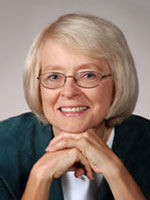

My youngest brother died a week ago. It was sudden. It was a shock. But it was somewhat expected. He hadn’t even made it to 60, but his body was giving up on him. His mental health was declining even more rapidly. That was “an elephant in the living room” though. He’s been mentally ill since grade school but he did not—and would not—acknowledge that. We all danced around it in trying to relate to him—with varying degrees of success and compassion.
Along with the grief and sadness of losing him, I am feeling relief. He lived on the very edge of our common reality, and that made him vulnerable to every well-muscled redneck with a dislike of “weirdos.” Now that he’s passed, I can let go of the worry and helplessness of not being able to protect him from 2000 miles away.
But I’m also relieved that I don’t have to try to communicate with him anymore. It was very hard work. That relief brings regret—I wish I had done more to make sure he knew I loved him, even if his replies sometimes came in such word blizzards that I couldn’t take them in.
My brother “made it home” without getting beaten up. He also didn’t hurt someone else—a consequence of mental illness that we are seeing more and more. The killing rampage at UC-Santa Barbara is just the latest example of how much is wrong for so many. Why are disenfranchised, angry men (yes, virtually all of the rampages have been instigated by men) deciding the “solution” to their own demons and nightmares is in killing other people?
Rationally, I can grasp that my brother’s disconcerting behavior was because of illness. It wasn’t’ something he chose. It wasn’t something he could change. The illness itself made the likelihood of him agreeing to the help he needed unlikely. The mentally ill 20-year old who went berserk on the UC-Santa Barbara campus had parents who were desperately trying to get him help. It wasn’t enough. What do we do with this problem? How do we stem this epidemic?
What can I do? What can any of us do that might make a difference?
Trying to get these people to change to what’s more familiar and comfortable to the rest of us does not work. That’s like expecting a person without legs to grow them because you bought them a new pair of socks. Getting them to take medications for illness they don’t even think they have is a hard sell. Plus how much are the meds contributing to the situation? Side effects can take years to manifest and what’s good for one body might not work in the next one—or the 100,000th one.
Is there a way to mitigate this that starts before the alienation becomes extreme? Can we do anything to keep this deep, painful version of aloneness from developing? One idea keeps coming back to me. Perhaps part of this deluge of horrible personal atrocity starts with a lack of connection that each of us really could be doing something about with very little risk to ourselves. What would happen if we all tried to be friendlier—even to the kid who’s looking at his shoes the entire time you talk to him?
What would happen if I smiled at strangers? Would it help if I gave a friendly nod to people who don’t seem to be “like me”? What would happen if we projected an attitude of acceptance in casual encounters? Like saying “Hello” or “Hihowareya?” or “Howzitgoin?” to those we pass. And waving to neighbors. Maybe offering a simple kindness like letting that meek person with two items who’s behind us at the checkout go first. Would this start to change if we were all a little warmer automatically?
This year’s commencement speaker at the University of Texas was Admiral William H. McRaven, Commander of Special Operations and a highly decorated Navy SEAL. As part of his comments, he talked about the compounding effects of what you do to help other people. His point: if each member of that graduating class did something to improve as few as10 other people’s lives, they really could “change the world” over generations. (Check out the whole speech, about 20 minutes long, at: https://www.youtube.com/watch?v=pxBQLFLei70.)
Maybe simply noticing the people who are “not like us” and being friendly is where we need to start with changing this. We’ll only find out if we try it.
***************
Mary Lloyd is a speaker and writer and author of Supercharged Retirement: Ditch the Rocking Chair, Trash the Remote, and Do What You Love. For more, see her website, www.mining-silver.com.

Leave a Reply